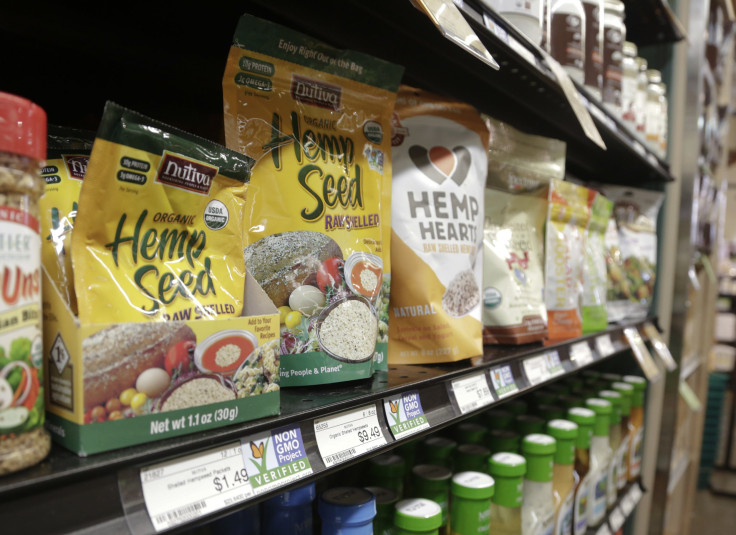GMO Labeling Debate Headed To Congressional Committee

GMO labeling -- or rather the move against it -- will have another day on Capitol Hill. A federal bill that would ban states from requiring labels that flag foods containing genetically modified organisms appears slated to be considered by a congressional panel next week.
A Dec. 10 hearing titled "Examining FDA's Role in the Regulation of Genetically Modified Food Ingredients" has recently been added to the online calendar for the House Energy & Commerce Committee, a move that reflects GMO labeling opponents' efforts to bring the issue before federal lawmakers.
Those in favor of labeling have long pushed for Congress to consider a law requiring all foods containing GMO ingredients to be labeled. But the votes simply are not there for such a proposal, and it appears that the Republican-majority House is instead moving forward with consideration of labeling opponents' dream bill. If the bill -- introduced by Rep. Mike Pompeo, a Kansas Republican -- were signed into law, it would undermine state and local efforts to institute GMO labeling requirements across the nation, according to the Wall Street Journal.
Big food companies argue that GMO labeling would cost too much to implement, resulting in losses for the companies and their shareholders and higher food costs for consumers. But a study by ECONorthwest on behalf of Consumers Union -- the policy and advocacy group that publishes Consumer Reports -- estimated earlier this year that it would cost only an estimated $2.30 per year per person.
Across the globe, more than 60 countries, including China, the European Union's 28 members and even Syria, require that genetically modified foods be labeled. As of May, nearly half of U.S. state legislatures had introduced bills to require manufacturers to label foods containing genetically modified or genetically engineered products, according to the Center for Food Safety.
Genetically engineered foods have been a flashpoint for debate, especially over the past year as companies like Monsanto and Swiss-based Syngenta AG came under fire for promoting GMO products and for lobbying Congress and state legislatures to reject bills that would restrict them or require labeling.
The issue of GMOs in the food supply came to a head in March 2013 with the backlash over the so-called Monsanto Protection Act, a measure written in cooperation with Monsanto lobbyists to limit the options of federal regulators if new health concerns about GMOs come to light. The language was slipped into a continuing resolution passed by Congress to keep the government funded.
In the end, the Senate killed the measure in September despite Monsanto’s efforts to ensure it remained on the books, but the damage to Monsanto and the GMO industry had been done despite limited evidence of negative health impacts of GMOs on humans.
The "Monsanto Protection Act" was seen as largely responsible for virulent anti-GMO sentiment that coalesced in late May when an estimated 2 million people around the world took to the streets in the "March Against Monsanto."
Earlier this month, "Top Chef" TV show judge Tom Colicchio came out in favor of GMO labeling, the Wall Street Journal reported. “I think we need clear and transparent labels on our food," he said. "We’re not asking for something on the front of a package with a skull and crossbones.”
But the scheduling of next week's hearing suggests that the momentum may be swinging back in the favor of anti-labeling crusaders.
© Copyright IBTimes 2024. All rights reserved.





















